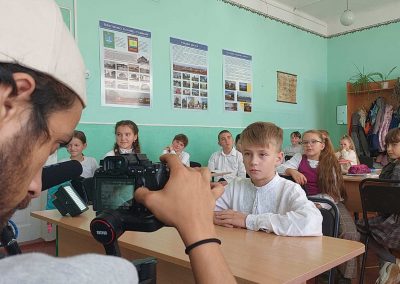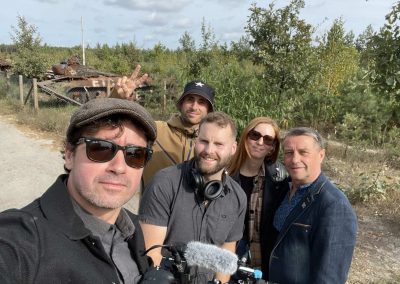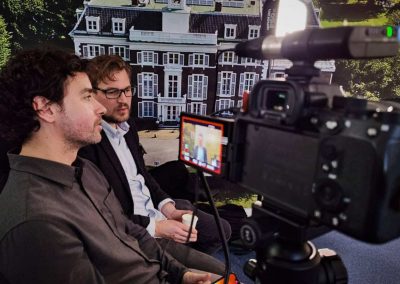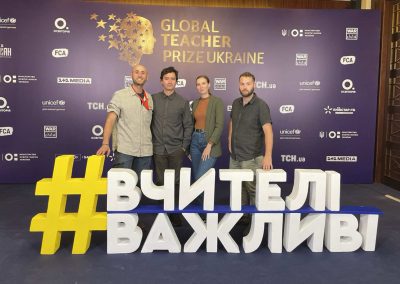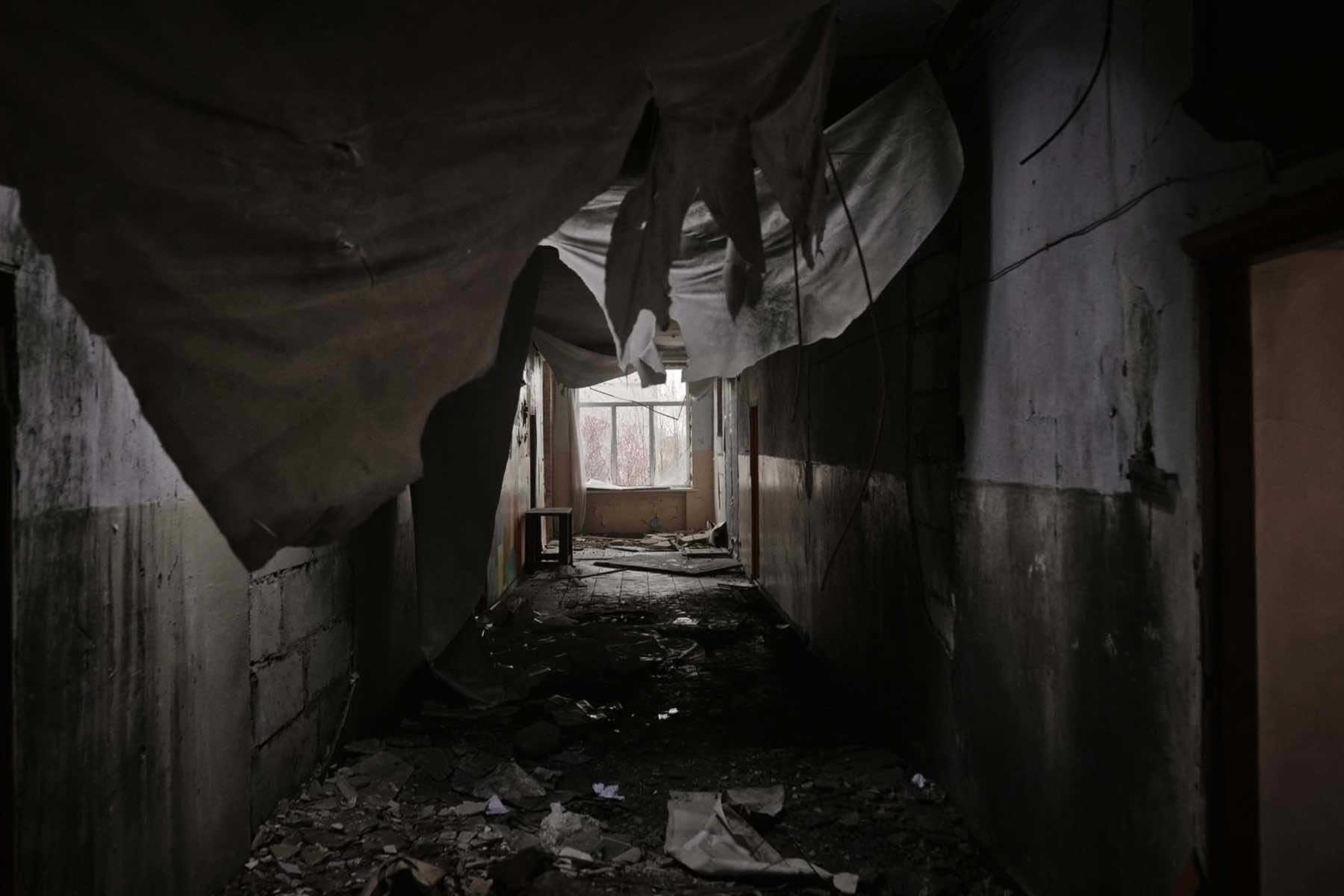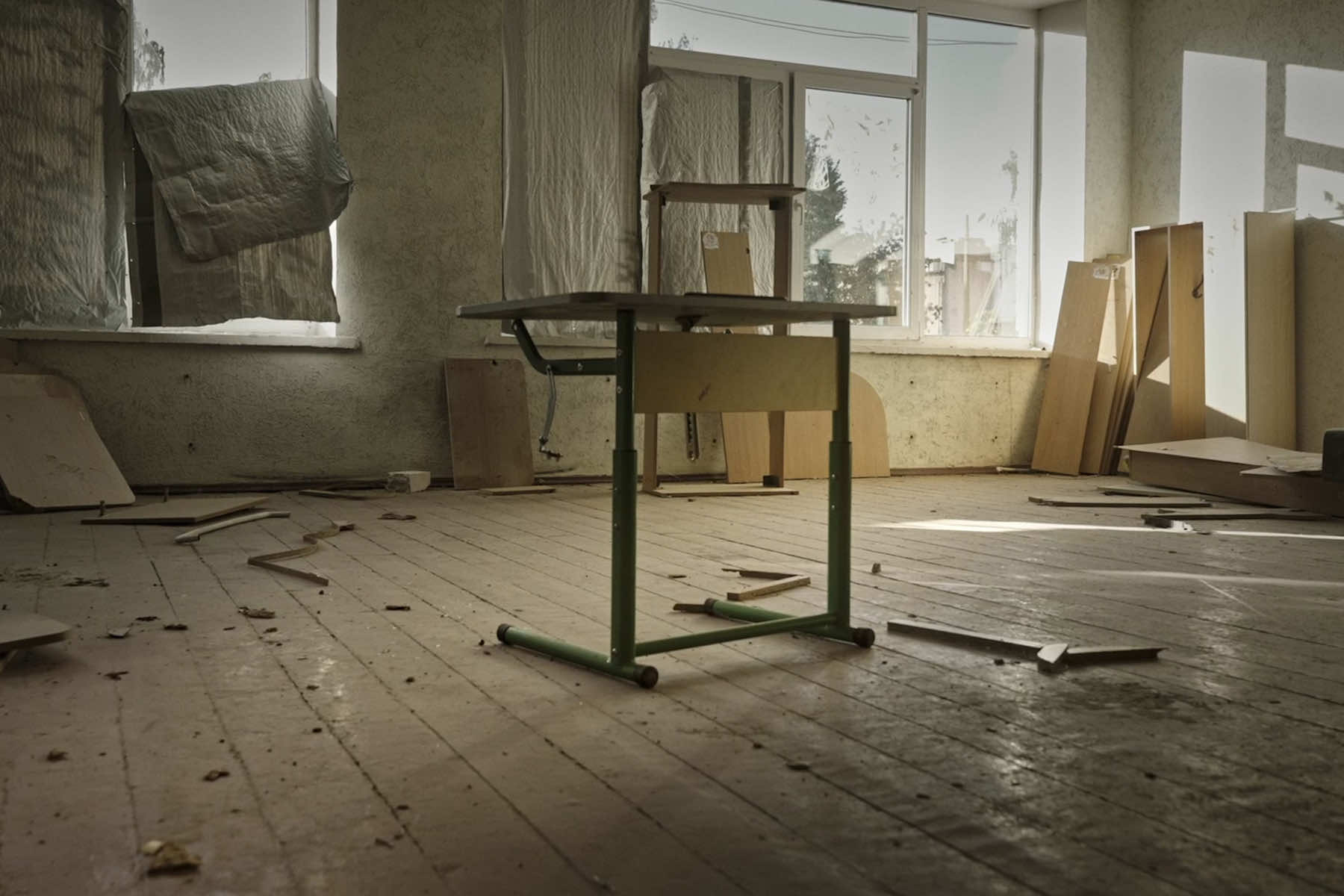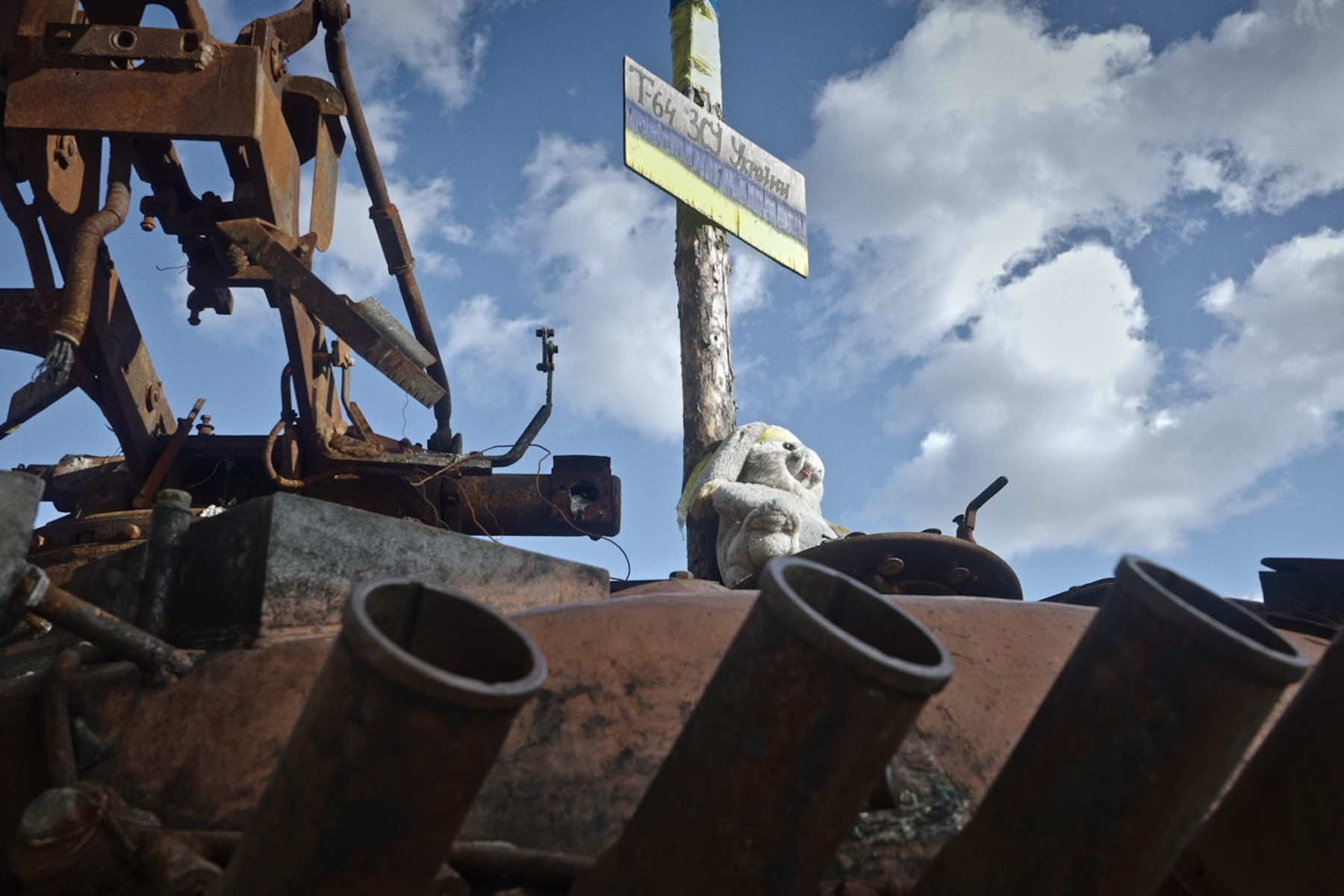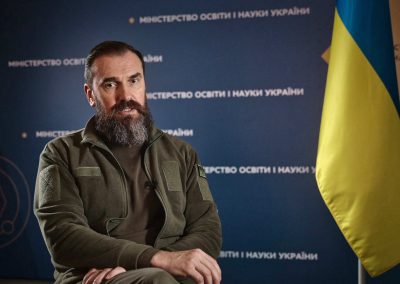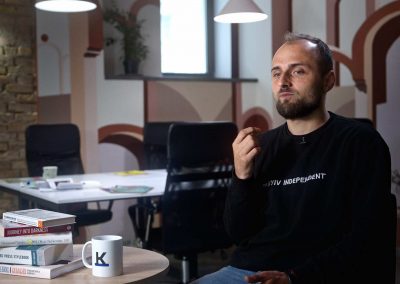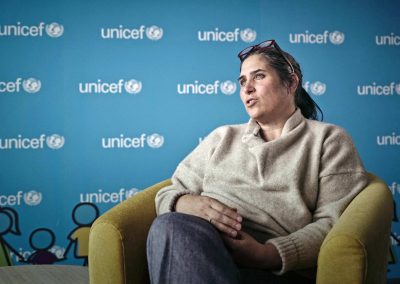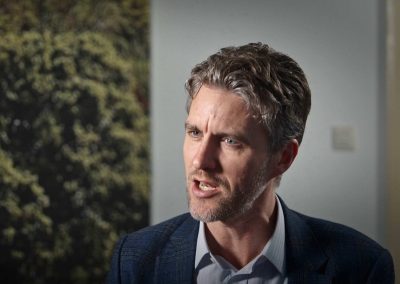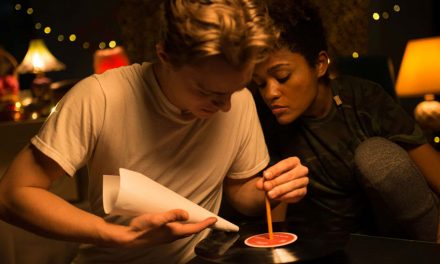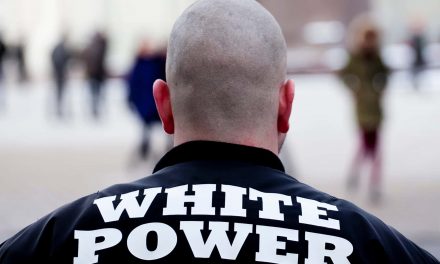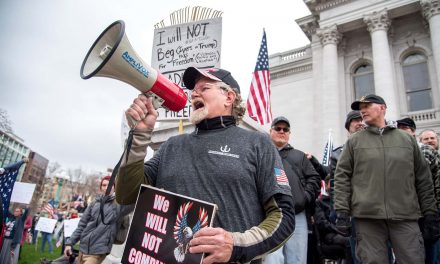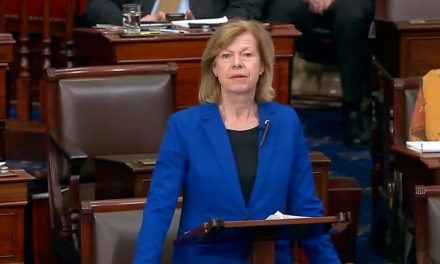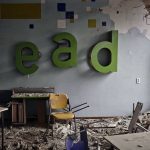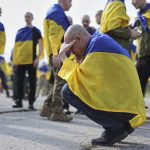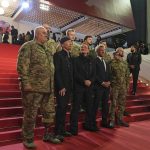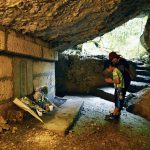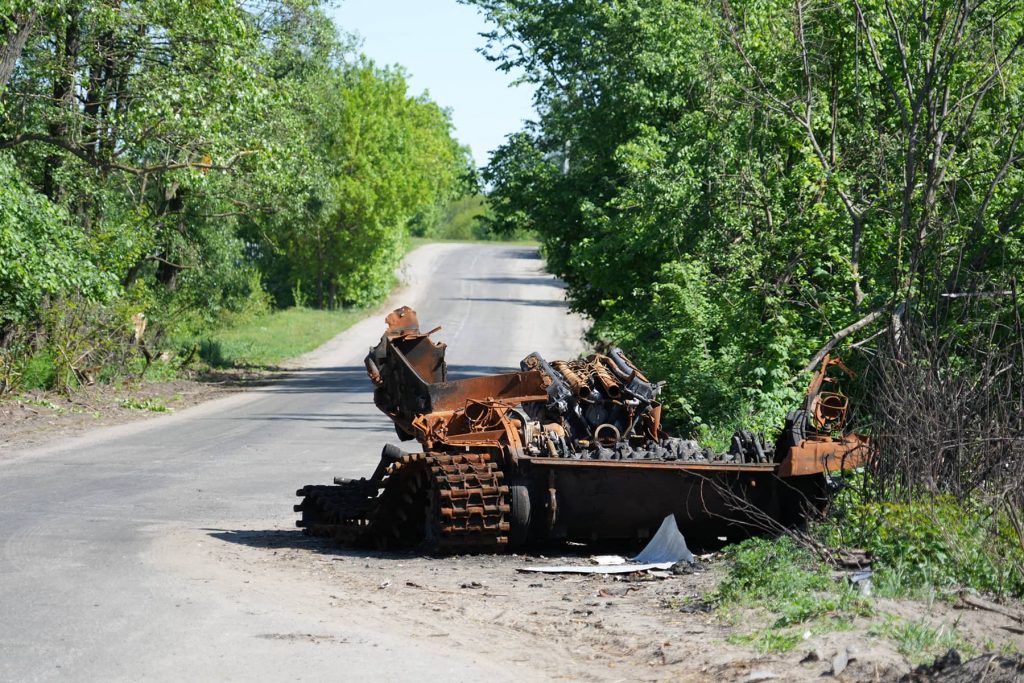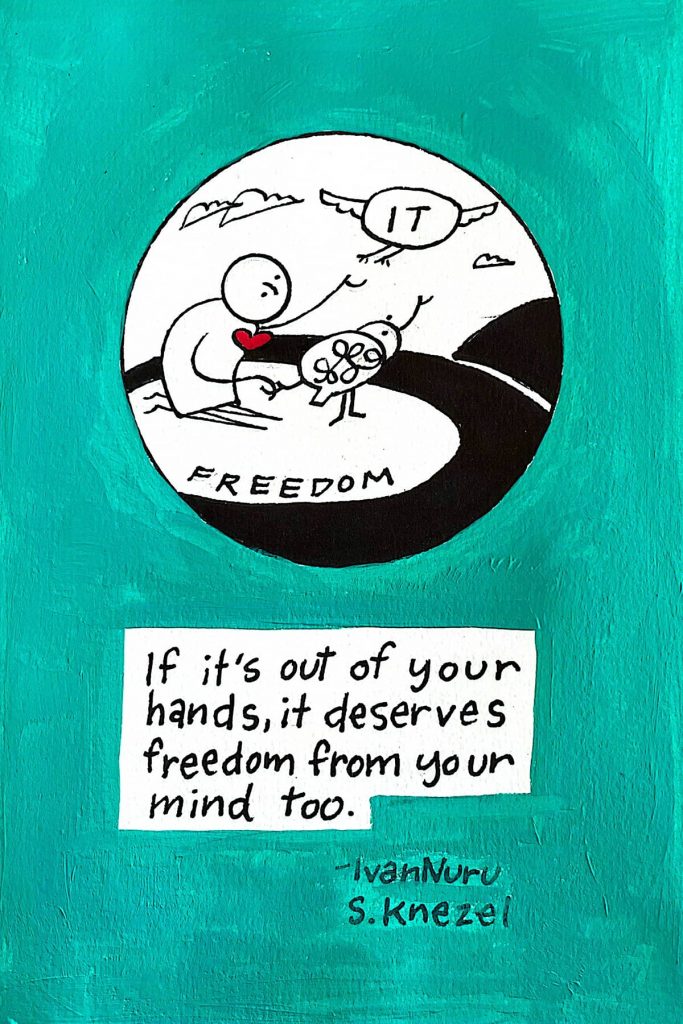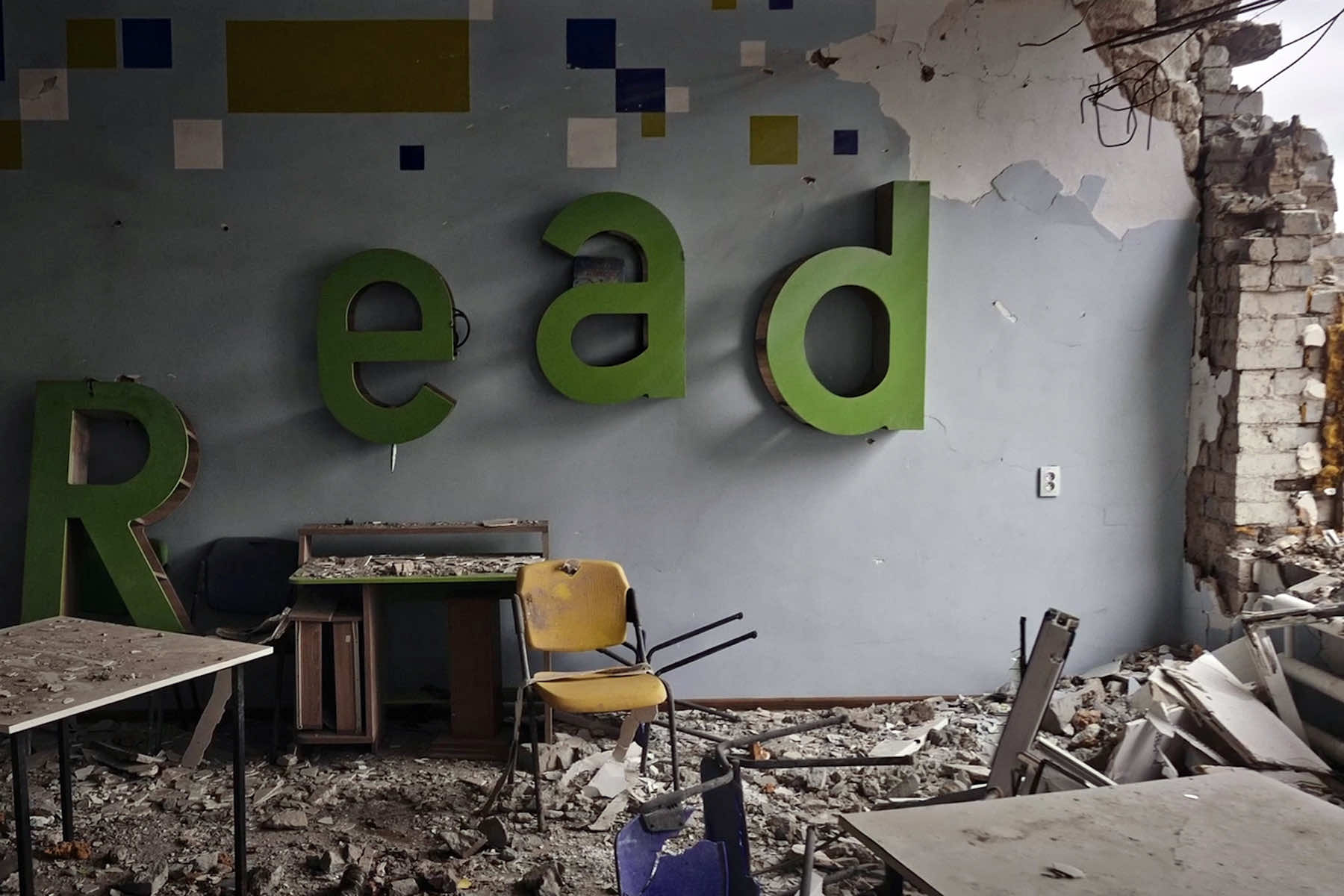
The North American premiere of “War on Education,” the acclaimed documentary about Ukraine by filmmaker Stefano Di Pietro, arrived in Milwaukee on June 1 with a message of urgency and a quiet sense of warning.
The film investigated how Russia’s brutal 2022 full-scale invasion of Ukraine turned schools, students, and teachers into ideological targets, and how education became both a weapon and a line of resistance.
Shown to a capacity audience of local residents and families from the Ukrainian American community, the film’s public screening was held at the Milwaukee Central Library and followed by a live Q&A with Di Pietro.
For the director, the story carried a personal weight that deepened during production.
“What I discovered, perhaps not entirely unexpectedly but still deeply, was how personal this story really was for me,” said Di Pietro. “I myself had been a victim of propaganda. I saw it happening in my country in the years when, as an adolescent, I started getting involved in politics.”
Di Pietro said it was something that left a mark on him, which he described in an interview with “Milwaukee Independent” as a quiet trauma that he carried for years and still had not gone away.
“That’s why this story resonated so strongly with me. When you start digging into other people’s trauma, you’re forced to confront your own,” said Di Pietro. “But that confrontation, while painful, can also be liberating.”
He described the filmmaking process as a form of shared healing, where he found moments of clarity and relief to be painful but also meaningful.
“That’s the cathartic experience of art. It begins as something personal, but in the act of making it and sharing it, it becomes collective, it connects us all,” said Di Pietro. “The wounds of the filmmaker are the wounds of the characters, and vice versa. This process opens up a space of honesty for the viewers to reflect on their own.”
The goal, ultimately, was for the film to land in unexpected and intimate ways, to be different for each viewer, but honest all the same. If it sparked that kind of reflection, even quietly, then Di Pietro said he felt the story had done its job. That alone would carry the needed weight of the message.
https://www.primevideo.com/detail/War-on-Education/0NL3BJXYPCBYWYMI1RDFVGAGCN
“War on Education” will be released globally on Amazon Prime Video on July 12, including in the United States. The film has already been screened at major institutions such as the European Parliament and the Council of Europe, where it drew attention for its unflinching focus on the personal and political cost of war through the lens of education, and the resilience of those who refuse to let learning be silenced.
Born in Rome to a family of scientists, Di Pietro credits his father’s influence for inspiring his passion for films. After his Doctorate in Cognitive Linguistics and research time at UC Berkeley, he moved to Amsterdam and began working on creating digital content.
Di Pietro’s documentaries and fiction films, in collaborations with UNESCO, the Anne Frank House, and the Council of Europe, have explored themes of antisemitism, reconciliation, and identity, earning several international awards.
Produced by Euroclio, the European Association of History Educators, and filmed across Ukraine, the Netherlands, the Czech Republic, and inside of Russia, “War on Education” began as a short film project titled “Books Not Bombs.”
That work was the documentary’s conceptual foundation and emotional seed. But it was Ukraine’s battlefield classrooms, war-damaged schools, and exiled teachers that demanded his continued focus with an expanded story.
“The curriculum in the occupied territory is Russian. It’s a process of re-education, which includes military training for kids from the age of 12, and war games for children that are even younger,” said Di Pietro. “There are now one million kids who are educated in the occupied territories. They are forced to learn another story, and the teachers are forced to teach a different narrative.”
The Milwaukee event, presented by Wisconsin Ukrainians, Inc., included a post-screening discussion with Di Pietro broadcast live from Europe.
Speaking openly about the production’s risks, goals, and ideological core, Di Pietro explained how the documentary evolved into what he called a “deep portrait of a weaponized education system.”
He also thanked the Milwaukee audience for their attention to understanding the abusive situation of education in Ukraine’s occupied territories.
The film chronicled what Di Pietro called “a process of re-education,” in which Ukrainian teachers in occupied territories are tortured, forced to abandon the Ukrainian language, and required to teach from a mandatory state-enforced Russian textbook that reduces Ukrainian identity to a myth and frames its sovereignty as illegitimate.
There is only one history book used in Russian schools, a work of fiction written by the propagandist Vladimir Medinsky. He is widely regarded as the architect of Russia’s nationalist historical narrative, enforcing a version of history that glorifies imperial Russia and frames the current war as a righteous cause.
Part of the documentary included Ukraine’s own counter-efforts of resistance, and work to push back against Russia’s attempts to erase its culture and history in classrooms.
“The focus of my work was not only to highlight what was happening in Ukraine, but basically what Ukraine can teach the rest of the world. What is particularly inspiring is that there is an educational reform going on in Ukraine as we speak,” said Di Pietro.
The reform program began after the annexation of Crimea, and in the wake of Ukraine’s 2013–2014 Euromaidan protests, a mass uprising against government corruption and Russian influence. After the fall of the pro-Kremlin regime, Ukraine launched sweeping education changes aimed at strengthening democratic values and critical thinking in classrooms.
“The aim is to transform education for good, to make sure that there is attention to the sources, that there are different opinions, that there is a certain freedom in interpreting,” said Di Pietro. “The sources are sure and confirmed, but the opinions are formed in the classroom, so that there is not only one view, not only one textbook.”
The stories and personal interviews featured in “War on Education” do not treat education as background context, but as the central terrain of modern warfare. The systematic bombing of schools, Di Pietro noted, was not collateral. It is the strategy.
“The artistic and cultural heritage of Ukraine is being attacked systematically. It’s what forms the identity of a people. That’s under attack, and it’s what should be preserved as a whole,” said Di Pietro. “Not only history, which is central, especially if it’s manipulated and used as a weapon, but all the humanities – all the culture that shapes our consciousness. It should be preserved.”
The documentary contained segments filmed in Russia to depict how the Russian government was controlling and militarizing its own education system. Di Pietro felt it was necessary to show the origin of the ideological campaign used against Ukrainians.
Di Pietro also shared details with the Milwaukee audience about the impossibility of physically filming inside Russia, which has been under the dictatorial grip of Vladimir Putin for nearly a quarter of a century.
“We wanted to represent what’s going on in Moscow, in terms of the memorial procedures around monuments in parks and museums. But we couldn’t go there. It was problematic, it’s difficult to get permission even as a journalist. Also, my profile would trigger some problems in terms of security,” said Di Pietro. “So, through a Russian activist, we found a production company. We gave them the script, and I remotely directed the Russian crew on what to film. I think it’s of value to also show, and as a historical record, what’s going on there.”
When asked what surprised him most during production, Di Pietro said it was not the trauma he expected to find.
“What struck me the most was their astonishing resilience, especially the teachers, students, and parents who continued to show up for education in the middle of chaos,” said Di Pietro. “What surprised me was the dignity and clarity with which many of them spoke. There was very little self-pity. Instead, there was this deep sense of duty, even hope. People were aware that everyone needed to do their part.”
Di Pietro said their role in education was vital, and they were actively resisting the effects of war by teaching, learning, and organizing.
“I remember a teacher in a partially destroyed school who said, ‘If we stop teaching, they win.’ Also, if we consider that Ukrainians are actually implementing an educational reform to make their system better, this is even more inspiring,” said Di Pietro.
Reforming education is often not a priority in countries that have the freedom to do it. It is usually a priority only for those who want to destroy an existing system. Di Pietro said that it can still be seen happening now in what Russia does.
“It is a priority for Putin, who published in record-breaking time the new Russian history book mandatory in all schools – you can see it explained in the documentary, but it is very rarely a priority to the ones that need to defend it,” said Di Pietro. “In that sense, what Ukrainians are doing and the Ministry of Education in particular, is amazing and should be taken as an example.”
Against this backdrop, the film lifts up Ukrainian educators and students not as passive victims but as defiant participants in opposition to cruel invaders.
Alexander Khrebet, a journalist at “Kyiv Independent,” shared his insight in the film, as well as school principals and Ministry of Education officials.
Their testimonies were combined with visual documentation from war-ravaged cities like Irpin, Bucha, Kherson, and beyond. Such images showed the wreckage of destroyed schools, while students learned in underground shelters, where teachers created improvised classrooms in basements, as families risk everything each day to keep children enrolled in school.
As Di Pietro concluded his Q&A with the Milwaukee audience, he was asked directly to compare the book bans and educational suppression in the United States. The director used the moment to reflect on how education systems can slide toward control and censorship under nationalist regimes.
“Now, in the U.S., what’s happening is scary, and it reflects certain traits of what dictatorships did in the past — and what they’re doing now. The difference between the U.S. and Ukraine is that there is no war on U.S. territory,” said Di Pietro. “Even though it’s really in danger, there is still freedom of expression, freedom of the press, and freedom to protest — and these are extremely valuable assets.”
Di Pietro noted that for all its problems, freedom is preserved in America. Whereas in the comparison to Ukraine, the people of that nation are targeted daily with indiscriminate bombing, and where portions of the population are forced to exist under a full dictatorship.
“So everybody has the duty and responsibility to do what they can to tell a different story, to try to contribute, to modify the agenda. Because it’s still possible to speak out — and that’s exactly why it’s so important to do it, even if there are risks,” Di Pietro added.
© Photo
Stefano Di Pietro (via War on Education / Euroclio)

